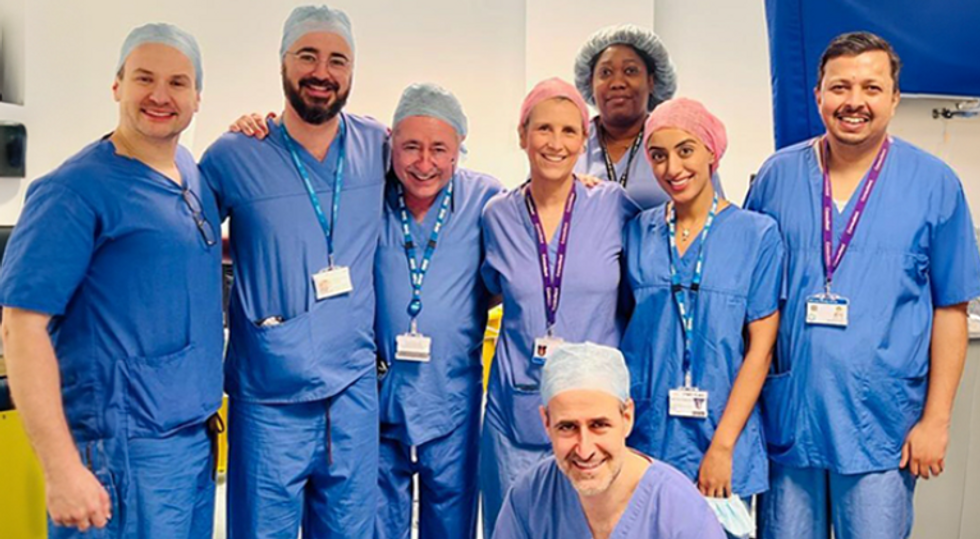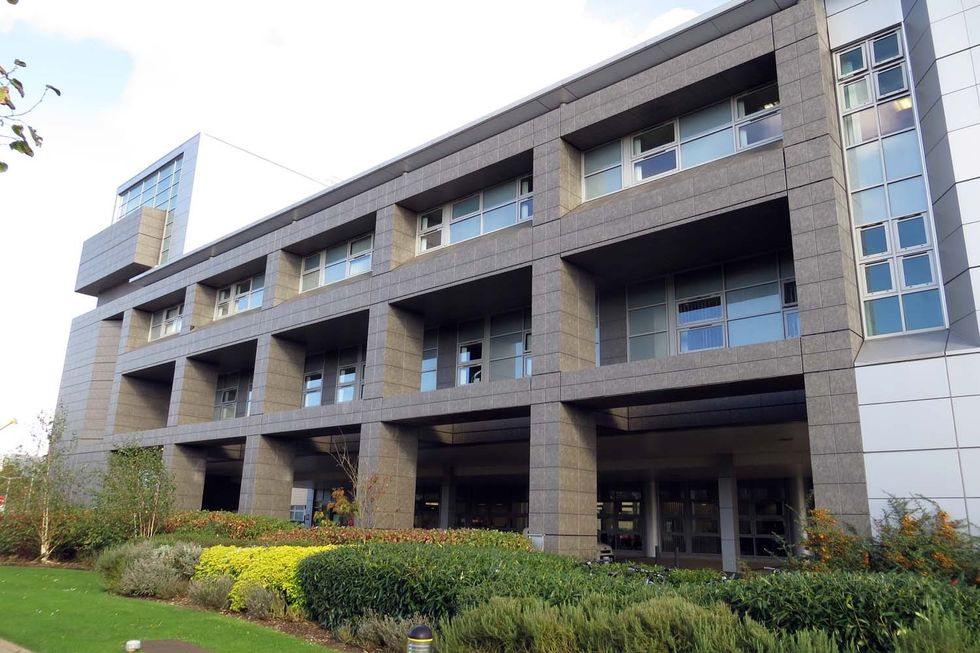
The UK’s first-ever womb transplant has been heralded as the “dawn of a new era” in fertility treatment, with surgery for trans women to become available “within the next 10 years”.
On Wednesday, British surgeons announced the “massive success” of the procedure in the UK, when a 40-year-old woman donated her womb to her sister.
Six months later, the 34-year-old recipient of the womb is now having periods and is preparing to eventually have her own embryos implanted.
Last week, a US transplant surgeon said “it is certainly medically possible” to perform the surgery on trans women, who were born male and since changed gender via surgery.

Surgeons in the UK also believe that the procedure will be made available for trans women, though suspect it won’t be for another decade.
Professor Richard Smith, one of two leading surgeons on the operation, said there was not the proper technology in place currently to give “equal treatment” for trans women.
“We’re very aware that the 2010 Gender Equality Act mandates equal treatment for cisgender and transgender women,” he said.
“But that assumes technical feasibility. And in this case, currently, there is not technical feasibility.
He added: “My own sense is if there are transgender transplants that are going to take place, they are many years off. There are an awful lot of steps to go through.
“My suspicion is a minimum of 10 to 20 years.”
British surgeons are currently focused on the near future, with a second womb transplant surgery scheduled for the end of this year.
The first successful UK procedure, which took place in February, cost around £25,000 and was paid for by donations to the charity Womb Transplant UK.
It comes seven years after the first ever successful womb transplant in Sweden.
Successful procedures have since taken place in over 10 different countries, including the US and Germany, which has resulted in the birth of approximately 50 babies.
The chair of the British Fertility Society said: “I think it's the dawn of a new age, a new era in treating these patients.”
TRANS NEWS LATEST
- Woke university sacks lecturer for refusing to 'indoctrinate students' with trans policy
- Canadian powerlifter says she REFUSES to compete against trans athletes as biological male sets record - ‘It’s pretty sad’
- Trans women banned from female chess events: 'They have no right to participate'

They added: “You have got to remember some of these patients are the most difficult fertility situations that you can imagine - they are either born without a uterus or they have lost the uterus for reasons of cancer or other problems, for instance in labour.”
Professor Smith spoke about the “emotional” ground-breaking medical moment.
“We were all in tears - it was a very, very emotional," he said.
“I think it was probably the most stressful week of our surgical careers, but also unbelievably positive.”
Dr Meenaskshi Choudhary, a consultant in reproductive medicine and gynaecology said: “This medical milestone offers hope not only to young girls born without a womb but also to a broader range of individuals facing reproductive challenges following removal of the uterus for various indications such as cancer.
“This ground-breaking womb transplant achievement, though in its infancy, may also offer a beacon of hope for transgender individuals as well, illustrating the evolving landscape of reproductive possibilities.”
from GB News https://ift.tt/4pSxncw

The UK’s first-ever womb transplant has been heralded as the “dawn of a new era” in fertility treatment, with surgery for trans women to become available “within the next 10 years”.
On Wednesday, British surgeons announced the “massive success” of the procedure in the UK, when a 40-year-old woman donated her womb to her sister.
Six months later, the 34-year-old recipient of the womb is now having periods and is preparing to eventually have her own embryos implanted.
Last week, a US transplant surgeon said “it is certainly medically possible” to perform the surgery on trans women, who were born male and since changed gender via surgery.

Surgeons in the UK also believe that the procedure will be made available for trans women, though suspect it won’t be for another decade.
Professor Richard Smith, one of two leading surgeons on the operation, said there was not the proper technology in place currently to give “equal treatment” for trans women.
“We’re very aware that the 2010 Gender Equality Act mandates equal treatment for cisgender and transgender women,” he said.
“But that assumes technical feasibility. And in this case, currently, there is not technical feasibility.
He added: “My own sense is if there are transgender transplants that are going to take place, they are many years off. There are an awful lot of steps to go through.
“My suspicion is a minimum of 10 to 20 years.”
British surgeons are currently focused on the near future, with a second womb transplant surgery scheduled for the end of this year.
The first successful UK procedure, which took place in February, cost around £25,000 and was paid for by donations to the charity Womb Transplant UK.
It comes seven years after the first ever successful womb transplant in Sweden.
Successful procedures have since taken place in over 10 different countries, including the US and Germany, which has resulted in the birth of approximately 50 babies.
The chair of the British Fertility Society said: “I think it's the dawn of a new age, a new era in treating these patients.”
TRANS NEWS LATEST
- Woke university sacks lecturer for refusing to 'indoctrinate students' with trans policy
- Canadian powerlifter says she REFUSES to compete against trans athletes as biological male sets record - ‘It’s pretty sad’
- Trans women banned from female chess events: 'They have no right to participate'

They added: “You have got to remember some of these patients are the most difficult fertility situations that you can imagine - they are either born without a uterus or they have lost the uterus for reasons of cancer or other problems, for instance in labour.”
Professor Smith spoke about the “emotional” ground-breaking medical moment.
“We were all in tears - it was a very, very emotional," he said.
“I think it was probably the most stressful week of our surgical careers, but also unbelievably positive.”
Dr Meenaskshi Choudhary, a consultant in reproductive medicine and gynaecology said: “This medical milestone offers hope not only to young girls born without a womb but also to a broader range of individuals facing reproductive challenges following removal of the uterus for various indications such as cancer.
“This ground-breaking womb transplant achievement, though in its infancy, may also offer a beacon of hope for transgender individuals as well, illustrating the evolving landscape of reproductive possibilities.”



0 Comments
Don't share any link